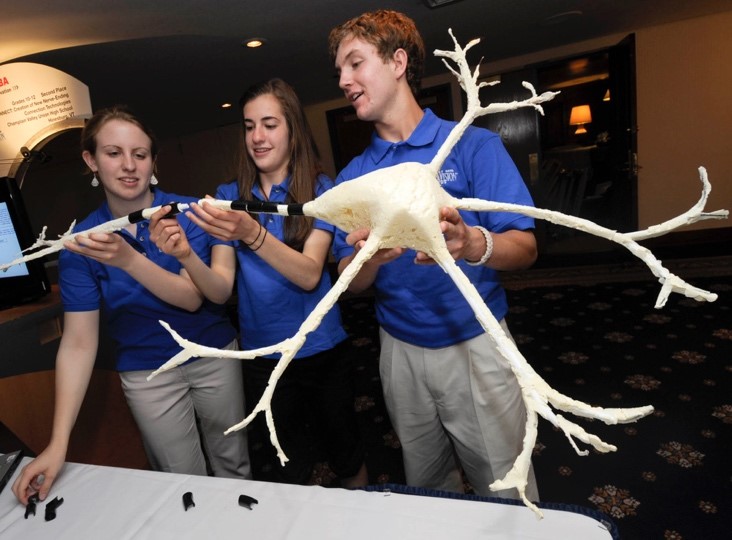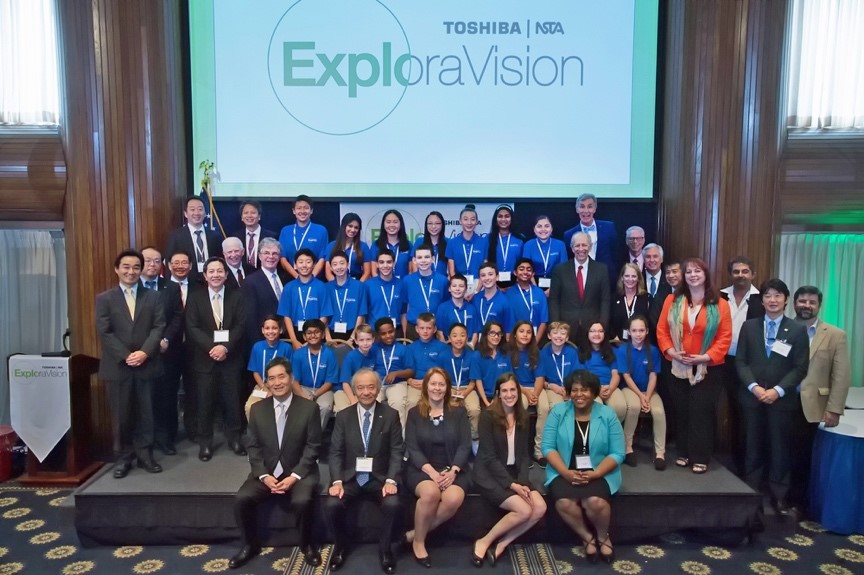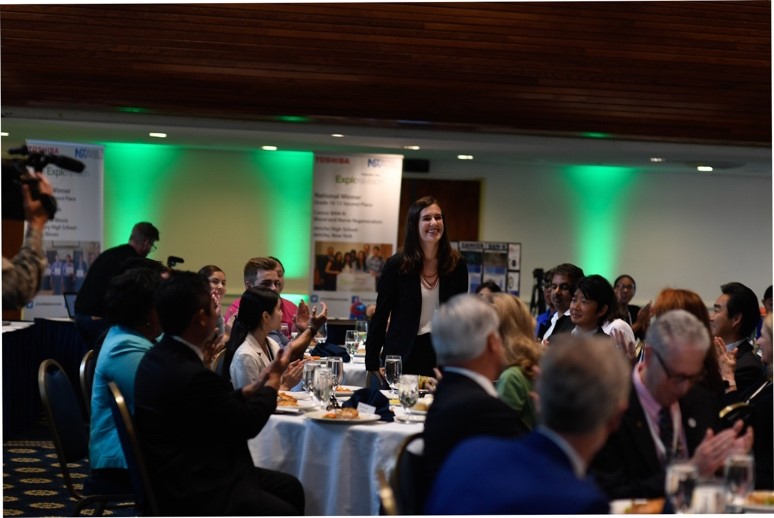Science is About the Story
When we learn about scientific discoveries, it can be easy to view them simply in terms of the series of biological facts or physics equations that led to the big breakthrough. But, in reality, science is about so much more than that. It’s about finding a problem so compelling that it demands to be addressed and working tirelessly towards a solution.
Every ExploraVision Project Tells a Story
Take my experience with ExploraVision eleven years ago. My team’s project CONNECT was about regenerating damaged nerve cells to restore functionality to paralyzed patients. I spent hours researching nerve cells and drug delivery, just as I imagine the teams this year spent time learning about cancer or greenhouse gases or noise pollution.

To be perfectly honest, I no longer remember too many specific details of my project, or too many specific facts about nerve damage. For some reason, my teammates and I talked a lot about dendrites, the arm-like extensions of nerve cells shown in the photo above, but I don’t remember quite how they were relevant to our project, or why we wanted to use two drug injections instead of one. But what I do remember now, more than ten years later, is Mrs. Rogers.
Mrs. Rogers was the fictional woman we described on our ExploraVision website. She was involved in an accident that resulted in paralysis from the waist down. She was a working mom. She was the kind of person that we wanted to help with our nerve cell regeneration project. We included her story to help people understand the value of our nerve cell research and its potential real-life applications.
It’s not a coincidence that I remember the story of Mrs. Rogers while the scientific details have faded away. It just underscores that, in science, the story matters.
Enhancing Science Through Communication
ExploraVision is about amazing science and I applaud all of the diligent research that every team across the country puts into their projects. But one of the best things about this ExploraVision competition is that it also encourages young scientists to show all of us why their technology is essential, and to clearly demonstrate on their website why the problems they are trying to solve are so important.

So whether your students want to become scientists or do something else entirely, I encourage you to challenge them to clearly and effectively share their ideas. If they decide to pursue science, they’ll have many opportunities to learn scientific facts and equations. But it’s important to emphasize the importance of being able to communicate well, in any field. Show your students how to use what they learned in English class to write a better chemistry paper. Teach them what makes a presentation easy to follow and challenge them to make an amazing PowerPoint for their engineering class.
In a time where we have more news outlets than ever and misinformation is extremely easy to spread, it is important that scientists in every field take it upon themselves to be clear about their ideas and to show the world why their work is important and relevant.
How to Teach Science Through Stories
ExploraVision is all about thinking ahead to the science of the future: what breakthroughs are needed? What is the next scientific frontier? Amazingly, the science I do now in my day-to-day life basically didn’t exist when I participated in ExploraVision. It’s nothing like regenerating nerve cells. And that’s okay.
There is so much exciting science to be learned, and it’s never too late for your students to figure out exactly what problems they want to solve. Challenge your students to find a subject they are passionate about and to think critically about how they can use science to better it.
ExploraVision allows you to show your students that science can be exciting and imaginative, and that science is changing every single day. It can inspire your students to keep thinking big and telling stories about science, whatever that ends up meaning to them.
I hope to hear those stories one day.
Download these powerful K-12 science lesson plans to get started!
About the Author

Shirlee Wohl is a former ExploraVision winner who pursued science as a career and now studies infectious diseases. She is passionate about the ExploraVision competition and its emphasis on real-world problem solving, and she hopes to spread that enthusiasm amongst K-12 students. Learn more about Shirlee and other ExploraVision Alumni.